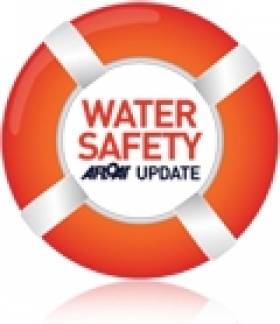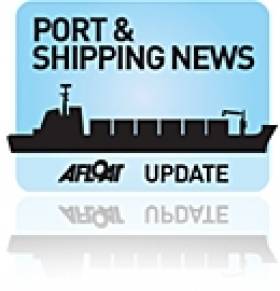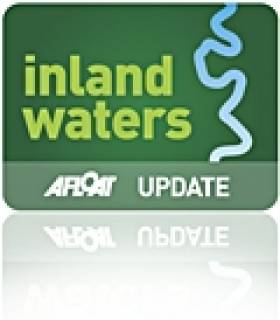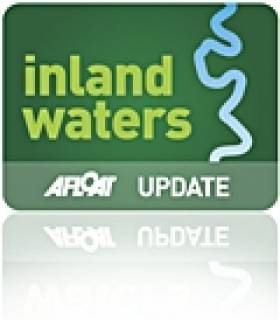Displaying items by tag: GPS
The latest Marine Notice from the Department of Transport gives advance notice of the discontinuation of the Differential Global Positioning System (DGPS) service around the coast of the island of Ireland from 31 March 2022.
DGPS has been provided as an augmentation service of the GPS signal by the General Lighthouse Authorities in Ireland and the UK since 1997.
The Commissioners of Irish Lights, in consultation with the Department of Transport, have resolved that the DGPS service has now become redundant and has decided to discontinue the service in waters around the coast of the island of Ireland after 31 March 2022.
Further information and guidance for maritime users is available on the Irish Lights website. This explains the background, consultation with the wider DGPS user group and guidance for maintaining the safety of navigation after the DGPS service ceases next spring.
Donegal Firm Innovates In Water Safety With GPS Lifejackets
#Lifejackets - The Sunday Independent writes on Donegal firm Mullion Survival Technology's new innovative lifejackets that come with the latest tech to ensure help comes quickly.
The compact design sits like a collar around the user, with plenty of room for movement, but most important is the built-in GPS beacon that pinpoints the location of the user to rescuers, and a bright light that activates automatically once they hit the water.
What's more, each Mullion lifejacket is registered to a particular user, so that emergency services can know exactly who they're searching for when the alarm is raised.
Mullion's devices have already been credited with saving the life of a fisherman off Co Down, as previously reported on Afloat.ie, and as of this year will be the standard personal flotation device (PFD) for the Irish fishing fleet.
Independent.ie has more on the story HERE.
#Navigation - Marine navigation systems in yachting and shipping are 'primitive' compared to the standard in air travel, according to an electronics expert.
As Yachting Monthly reports, Martin Bransby of the UK's General Lighthouse Authorities said that "demands on marine navigation are only getting tighter, yet electronic systems at sea a primitive compared to those used in air travel. This needs to change."
Bransby made his comments following a trial to tackle the problem of rogue GPS jammers in the North Sea by the lighthouse authorities at Trinity House.
The new PNT (positioning, navigation and timing) method uses new technology to transmit critical data in the even of the loss or failure of GPS, which is vulnerable to interference from a variety of sources, both environmental and deliberate.
"The more dependent we become on electronic systems, the more resilient they must be," said Bransby. "Otherwise, we face a scenario where technology is actually reducing safety rather than enhancing it."
These new trials come after news that the Irish Coast Guard is collaborating on a new system of marine monitoring that will help detect drifting or rogue vessels in international waters before they become a problem for individual states - such as the 'ghost ship' MV Lyubov Orlova which as of last week was still adrift heading eastwards somewhere in the North Atlantic.
New Mobile Guide to Lough Derg Trails
#INLAND WATERWAYS - A new mobile app that guides visitors around the trails of Lough Derg has gone live, the Clare Champion reports.
More than 20 trails are included in the app, from walking to cycling, driving, cruising and canoeing.
The app - developed in partnership between Shannon Development and US firm EveryTrail - uses Google Maps and the GPS system in smartphones to pinpoint trails near the user's location.
Users can download route descriptions, images and notes, get directions to the starting point and follow the the pre-plotted course.
The Lough Derg Trails app is available for iPhone and Android devices.
The Clare Champion has more on the story HERE.
New GPS Product for Shannon Navigation
The Inland Waterways Ireland download is the first boating product developed for the Shannon Navigation compatible with all Garmin mapping compatible recreational and marine devices.
It allows the user to search for points of interest (POIs) as well as build routes automatically or manually on the Shannon Navigation network.
POIs include marinas, geographic named places, lakes and much more. The Inland Waterways Ireland product also features locks, jetties, fishing locations as well as lake and river shorelines.
If you fancy getting this download to explore this beautiful part of Ireland yourself go HERE.
Van Gelderen Becomes Fastest Sailor on Irish Waters
The Irish GPS Speedsailing record fell again last Friday in Dungarvan when Oisin Van Gelderen broke all previous speeds, becoming the fastest sailor ever to sail on Irish waters.
The speed is ratified by the WGPSSRC (World GPS Speedsailing Records Council):
http://www.gps-speedsurfing.com/default.aspx?mnu=records, who issue GPS records based on the best 10 second run of 45.02 knots, and a distance travelled of around 270 metres in this time.
The 5 x 10second run average, currently puts him in fourth overall on the 2011 GPS speed ranking list and 23rd overall in the all time rankings.
Peak speed for the day was 46.32 knots (84 kmph), and 500m speed was 43.96knots.
Even though Van Gelderen broke the late John Kenny's 500m speed, he retains that title for now, as the WSSRC (World Speed sailing Records Council) issue National records for that distance, and do not yet recognize GPS.
The rise in popularity in GPS speedsailing has made the competition a worldwide phenomenon, as people from different countries compete year round to push their personal and international speeds. Over 4000 members subscribe to the gps-speedsurfing.com website.
Raymarine rescued from brink of collapse
Boating electronics provider Raymarine was saved from collapse over the weekend with a last-minute buyout.
Negotiations with a 'third party', which turned out to be the eventual purchaser, broke down momentarily, with GPS company Garmin making a last-ditch bid to buy the company. The bid would have been subject to receiving the green light by competition authorities.
Raymarine plc was forced to go into administration when its banking consortium withdrew finance on May 13, casting the future of the company into some turmoil.
As a result, Raymarine plc was put into administration on Friday, with all the working business elements of Raymarine Holdings then immediately sold out of adminstration to the original third party.
The eventual purchaser was Flir Systems, a US-based thermal imaging company, which bought Raymarine at a valuation of £124 million, making a 20-pence-per-share return to shareholders. The purchase price includes Raymarine's debt, which has been put at close to £100million, but the per-share return may diminish further once creditors claims come in.
Although Garmin's per-share bid was higher (£0.35 per share), the immediacy of the Flir bid made it more palatable to the administrators.
The transaction ensures business as usual for Raymarine customers and suppliers.
Raymarine is one of the world's leading radar, GPS and marine instrumentation brands. Flir are a major manufacturer of thermal imaging cameras
All documents relating to the sale can be viewed on Raymarine's investor relations page.



































































